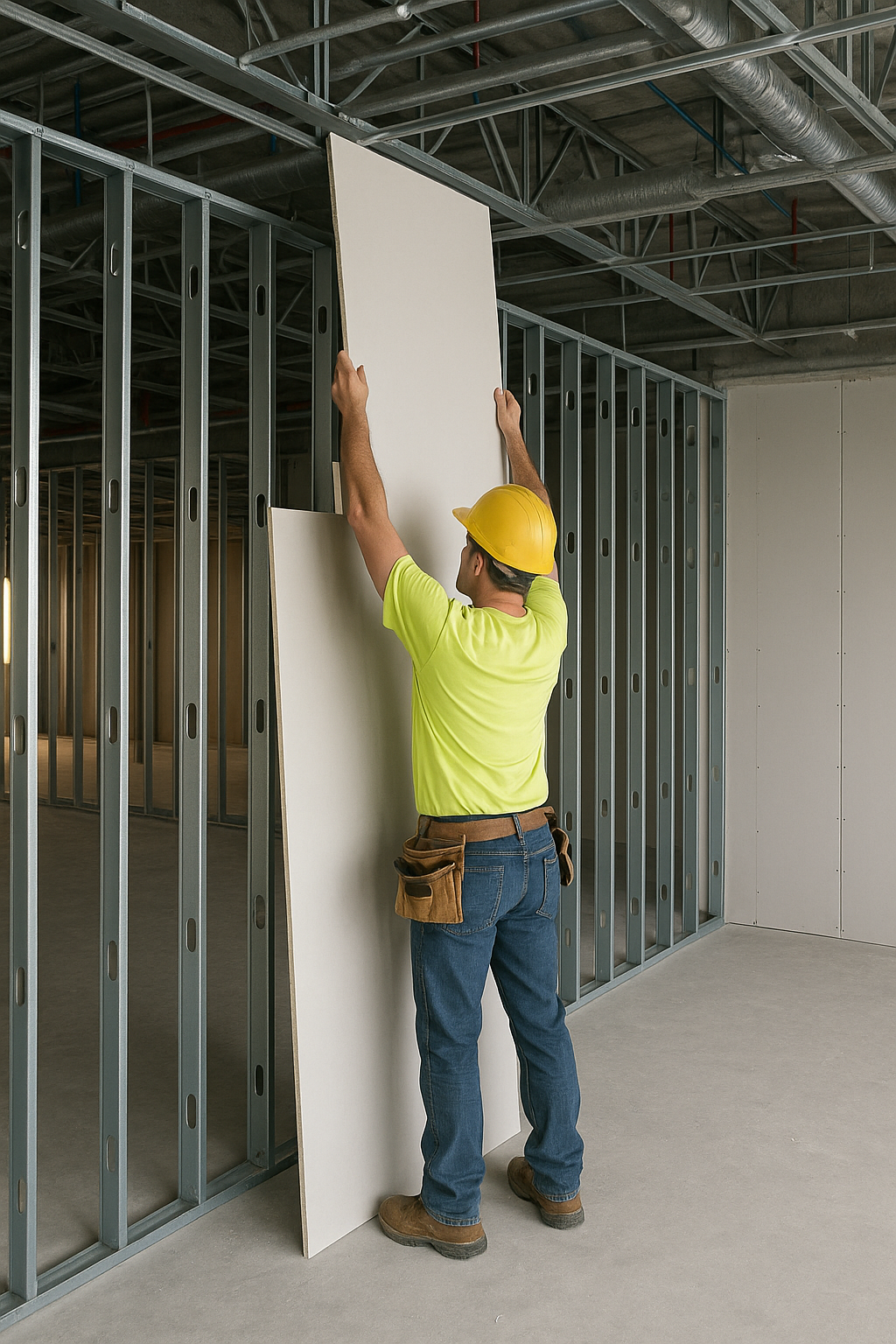
Specialty drywall boards—such as moisture-resistant, fire-rated, impact-resistant, and soundproof varieties—play a crucial role in meeting building performance requirements. However, their complexity, varied application methods, and higher material costs make them significantly different from standard gypsum boards when it comes to estimating. For architects, engineers, and general contractors, accurately pricing these materials during preconstruction is essential to avoid underbidding or unanticipated cost spikes during the build.
Understanding the building type and its associated code requirements will determine whether specialty boards are needed. Common scenarios include:
Unlike standard drywall, specialty boards impact not only material costs but also labor and accessories. Considerations include:
The key to reliable pricing lies in isolating specialty assemblies from general partitions and applying the correct rates to each. Active Estimating allows users to build layered drywall assemblies with customized labor units and accessory logic. This makes it easy to capture both objective takeoff quantities and subjective modifiers based on installer experience or job complexity.
In a retail project, a contractor applied standard board pricing across restroom and janitorial areas. The moisture-resistant board was not accounted for until the procurement phase, leading to a 20% spike in material costs and a delay due to longer lead times. By using drywall estimating tools that allow for early tagging and adjustment, such issues can be avoided from the outset.
Specialty materials often change as the design evolves. Using a continuous estimating system like Active Estimating allows teams to update quantities and logic as these changes occur, ensuring alignment between the model and the material buyout. Transparent tagging and version control enable teams to see how pricing has changed and why—reducing surprises and rework in the field.
Specialty drywall boards serve critical performance roles—but they come at a premium. Estimators must treat them as distinct from standard gypsum systems, applying unique logic for labor, accessories, and procurement risks. With transparent assemblies and continuous data updates, Active Estimating gives professionals the tools to price these scopes with confidence and accuracy.
Contact Information:
Active Estimating
508 2nd Street, Suite 208
Davis
California
95616
Rich Schoener
richard@activeestimating.com
(877)
Schedule a personalized demo to see how Active Estimating can work for your specific needs.
